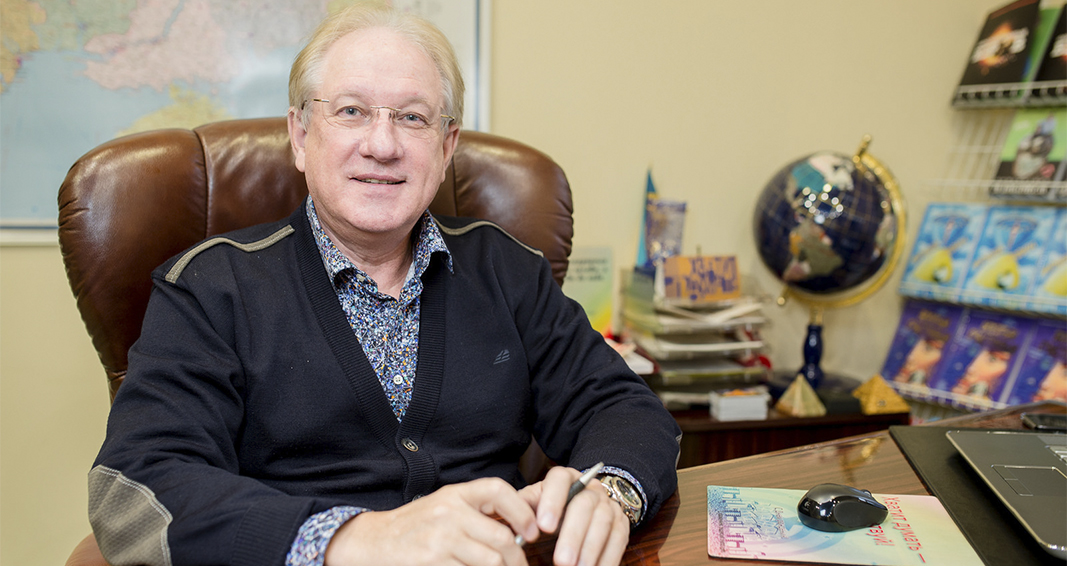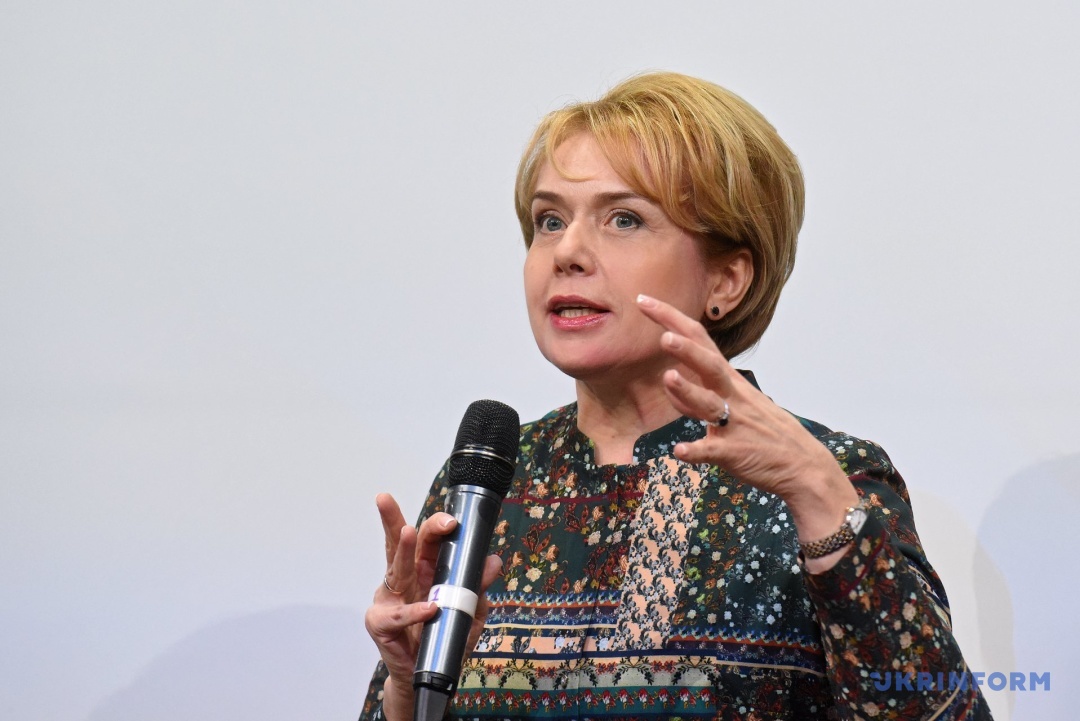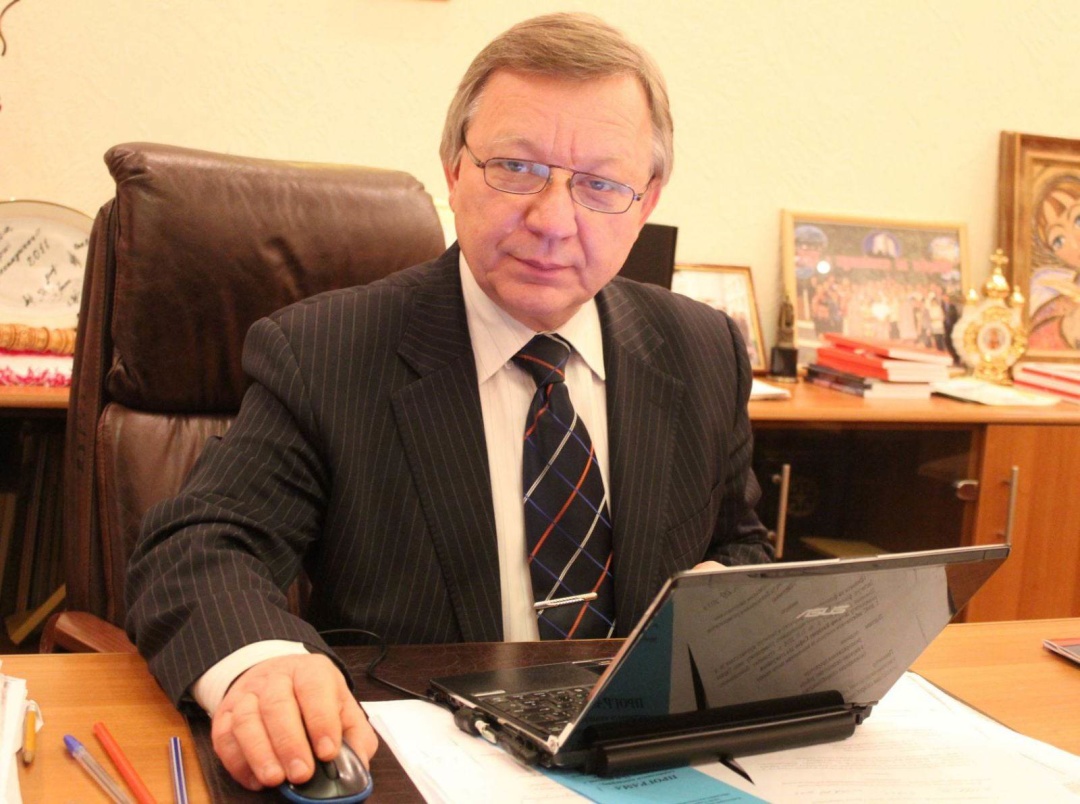Ukrainians, like no one else, deserve to participate in progressive world processes and access to advanced technologies. Therefore, the recent removal of our state from the list of countries whose developers have banned the use of the smart ChatGPT chatbot can be considered another small victory. However, with new opportunities come new troubles, and the question immediately arises, how can you dispose of the new development and for what purposes is it better to use it? This gave rise to a wave of discussions and passionate discussions in television studios, Internet resources and in the spaces of social networks. The interest caused by the chatbot is fully justified, because the access of the broad masses to the use of artificial intelligence can potentially make corrections in various aspects of our lives.
AI IS THE WAY TO RECONCEPTION OF THE EDUCATIONAL PROCESS
Perhaps the greatest impact of the new technology is expected on the field of education. Now that schoolchildren, students and teachers can use AI services, there is a need to rethink the concept of academic integrity. In addition, original ways to optimize the educational process are opened. So it’s time to turn to experts and analyze their vision of the prospects and risks of involving ChatGPT in the domestic education system.

Thus, the founder of the first private lyceum “Grand” Volodymyr Spivakovsky sees the chatbot as a tool for the modernization of the Ukrainian school, as he repeatedly stated on his Facebook page. He shared his thoughts on the potential of this technology with Ukrinform:
“What is the problem with the education system today? It suffers from meager educational content, not very effective technologies, problems with teachers, and as a result – weak knowledge of students and illusory prospects for the future. It is believed that, first of all, schoolchildren should learn to ask questions. ChatGPT easily helps to master this habit. And from here comes the main skill – “learning to learn”, which we could not achieve in any way before. In addition, students will be able to optimally increase their critical, logical, analytical thinking and concentration of attention. To expand the picture of the world and to be able to talk with another intelligence, which was not possible before. In the meantime, it will be easier for teachers to create coursework and assignments. Faster, smarter, clearer and more effective. Learning and teaching will become much easier, and the education system will be more structured.”
Spivakovskyi also notes that today a serious challenge for a person is the endless amount of information, because it becomes physically impossible to process them quickly:
“In the information age, which suddenly fell upon us, we were unarmed. No one knows how to extract, recognize, analyze, filter, enrich, construct and apply this information. But it shouldn’t be like that. That is why more and more effective tools are appearing, which are steadily being improved. And ChatGPT is one of them, although not the only one.”
The expert emphasizes that before the popular chatbot is officially recognized and implemented in the field of education, its tools must undergo comprehensive testing. For example, with the help of pilot projects that multiply in the world every day. Despite this, inspired users independently discover the experience of communicating with AI and experiment in every way.
“Despite its short term, ChatGPT has already gained popularity and millions of enthusiasts are testing its capabilities with great speed. Some decided to just play with him, checking for intelligence, speed, logic and the “fool effect”. Others took it seriously, formed quite decent tasks and were rewarded with perspectives that are gradually opening up and being realized,” said Spivakovsky.
ABOUT FEARS WHICH ARE ACTUALLY USELESS
It is obvious that the technological novelty raises many questions for all participants of the educational process. Teachers consider the risks of unscrupulous use of ChatGPT by their students, parents worry that their children will lose the ability to think critically and independently search for the necessary information. To shed some light on the situation, Volodymyr Spivakovskyi formulated a number of fears that worry educators, and briefly commented on each of them:
● Fear: the child will lose the ability to think when using ChatGPT.
Comment: A child will not lose his thinking skills in the same way that a chess player does not lose his chess skills by playing against an opponent, even if that opponent is a computer. After all, you won’t learn to play by reading chess books alone. Active communication with someone is required. Similarly, ChatGPT in school education is an invaluable interlocutor, assistant and intellectual pleasure.
● Fear: AI lacks a vocabulary and phraseological base.
Comment: it is worth remembering that the volume of data of the Ukrainian-language version of ChatGPT is several times smaller than that of the English original, which contains 175 billion words and phrases. Therefore, it is better to ask questions in two languages at once, and then compare the answers, choosing an algorithm for how to proceed further. And count not on a one-time answer, but on several iterations. Each time, the information will become more enriched. In the final, we get a double result – both improved command of English and information filtering skills.
● Fear: Not everyone will quickly learn how to use a chatbot.
Comment: ChatGPT is now used in the same way that people used it as a typewriter at the dawn of personal computers. And it’s not surprising, because then we didn’t know anything else. But over time, everyone realized that the computer has a completely different purpose and much wider possibilities.

The Minister of Education and Science of Ukraine from 2016 to 2019, and now the first vice-rector of Kyiv University named after Boris Grinchenko, Lilia Hrynevych , also believes that artificial intelligence skills can be usefully involved in the educational process.
“These technologies can be used, in particular, to create relevant educational materials. Since ChatGPT works with different texts, formulas and numbers, it can generate test tasks with a single algorithm that will be used as training exercises on a certain topic. We now have a very serious problem with gaps in education that children received first during a pandemic and now during a full-scale war. Depending on their educational experience, they have completely different levels of academic achievement. To fill these gaps, it is necessary to diagnose them. And this means that we need a significant amount of evaluation materials in all subjects for different age categories, by which teachers can test children and, according to the results, train them in the necessary directions. That is, the main task is to how to help teachers start using a chatbot properly for this purpose, and how responsible persons can provide them with such a toolkit. In my opinion, it is ChatGPT that can save a lot of time for the preparation of materials related to the assessment,” said Hrynevych in an interview for Ukrinform.
The vice-rector also emphasized that in the case of the use of a chatbot by pupils and students, the key role is played by the purpose with which they turn to the “services” of artificial intelligence:
“ChatGPT formats text from many sources, making it a great tool for finding specific information. It’s another thing when someone uses it, without a culture of academic integrity, to find a ready-made answer to an assignment. Here we face the next challenge. First, how to identify AI-generated text as opposed to directly by a student or student, and second, how to promote the prioritization of academic integrity in educational circles. So if we present this technology in educational institutions, we need to understand which products to use to identify the text material generated by artificial intelligence. Given that there are separate organizations in Ukraine whose goal is to ensure academic integrity, the more applications based on the use of AI will become more widespread,
Such tools are likely to be included in the stages of checking course and diploma theses in higher educational institutions. However, according to Lilia Hrynevych, this is not the only way to avoid the risks of fraudulent use of ChatGPT:
“Much depends on the tasks we offer students. After all, despite all the possibilities with which artificial intelligence is endowed today, it has great limitations compared to the mental activity of a person. That is why it is necessary that the topics of coursework and diploma works are extremely relevant, require human creativity, analysis, as well as conclusions that relate to a specific modern context. In this case, it will not be possible to limit yourself to using ChatGPT or its analogues. Therefore, modern technological progress encourages us, teachers, to update educational topics, self-development and search for non-standard solutions. After all, there are traits inherent only to people, which are associated with empathy, interest and motivation, unique results of cooperation due to the combination of temperaments and different points of view. One way or another, the person is ahead now. the main thing

Volodymyr Rizun, director of the Educational and Scientific Institute of Journalism of the Taras Shevchenko National University of Ukraine, told Ukrinform about his own experience of interaction with ChatGPT .
“Personally, I became interested in the new technology and for the moment I understand that ChatGPT can generate general statements, make some predictions or predict the development of events. I also understand that the accuracy of the information provided by him cannot be trusted in any case. For example, I asked what laws prohibit the use of Russian sources in scientific texts. The chatbot quoted me a passage of the legislation and gave me the article number, but a check of the information revealed that it did not exist in the original document. Now, I don’t share the excitement about the possibility of getting ChatGPT into serious work, which is happening in certain circles. I also doubt the ability of this technology to replace a person today. After all, it is clear that any AI must develop a database, self-learn, and form a picture of the world. Like a person, he can make mistakes,
The director added that the new technology is certainly very interesting, but he does not yet see it as a global threat or a significant help for the education system.
“If a pupil or student limits himself to the answer provided by the chatbot while completing the task, he will most likely receive distorted and inaccurate facts. At the same time, an independent search for specific data and arguments in open sources would lead to a greater understanding of the given topic by the student of education and would reduce the risk of erroneous judgments.
In any case, we are already on this path and learning to use ChatGPT capabilities in our activities. It is important to realize that this is an irreversible process, and over time, more advanced AI will appear, which will have more data. That is why we cannot simply prohibit or stop technological progress. Of course, it would be possible to disable this system at the global level, but since it is already available in Ukraine, it is inappropriate to limit individual users in its use. Instead, it is necessary to carry out educational activities for children and youth aimed at increasing the level of media education. There is already an understanding in society that not all programs on television are worth watching, and not everything is worth reading – you need to choose sources wisely and distinguish truth from fiction. Now a similar criticality should work during the use of ChatGPT.
He also told what conclusions he reached during the use of the technology that gained such publicity: “In general, this chatbot is not designed for simple questions and requires clarification of the context. Therefore, it is necessary to understand well the capabilities of the system itself and use it accordingly. Yes, some users have already come to the conclusion that it is better to ask ChatGPT such tasks that require generalizations. For example, when I asked him to formulate a definition of social communications, I received a beautiful text in response. I even plan to present this definition to students and point out that it is generated by artificial intelligence.”
The potential impact of ChatGPT on the field of education is being considered not only in higher education institutions, but also in schools. For example, Larisa Sivkovska , deputy director of educational work at Kyiv Gymnasium No. 283, shared her own vision of the situation with Ukrinform:
“On the one hand, this is a new opportunity for students to perform certain tasks with the help of this service. On the other hand, it should be remembered that artificial intelligence uses previously created human assets. So I think we should not be afraid that our children will stop thinking independently. At first, there will be some excitement, admiration for its possibilities, but the desire to learn, solve certain problems, create new projects, and write your own works will have an advantage. This is how technologies develop, and ultimately, this is how humanity has existed for thousands of years.”
Summarizing, we can say that the combined efforts of man and artificial intelligence can bring many effective and revolutionary innovations to the Ukrainian education system. However, before that, we need to go a long way in search of the most optimal interaction scenarios, as well as for all participants in the educational process to learn to thoughtfully use new technologies, directing them to their mental development, not decline.
Source: https://www.ukrinform.ua/